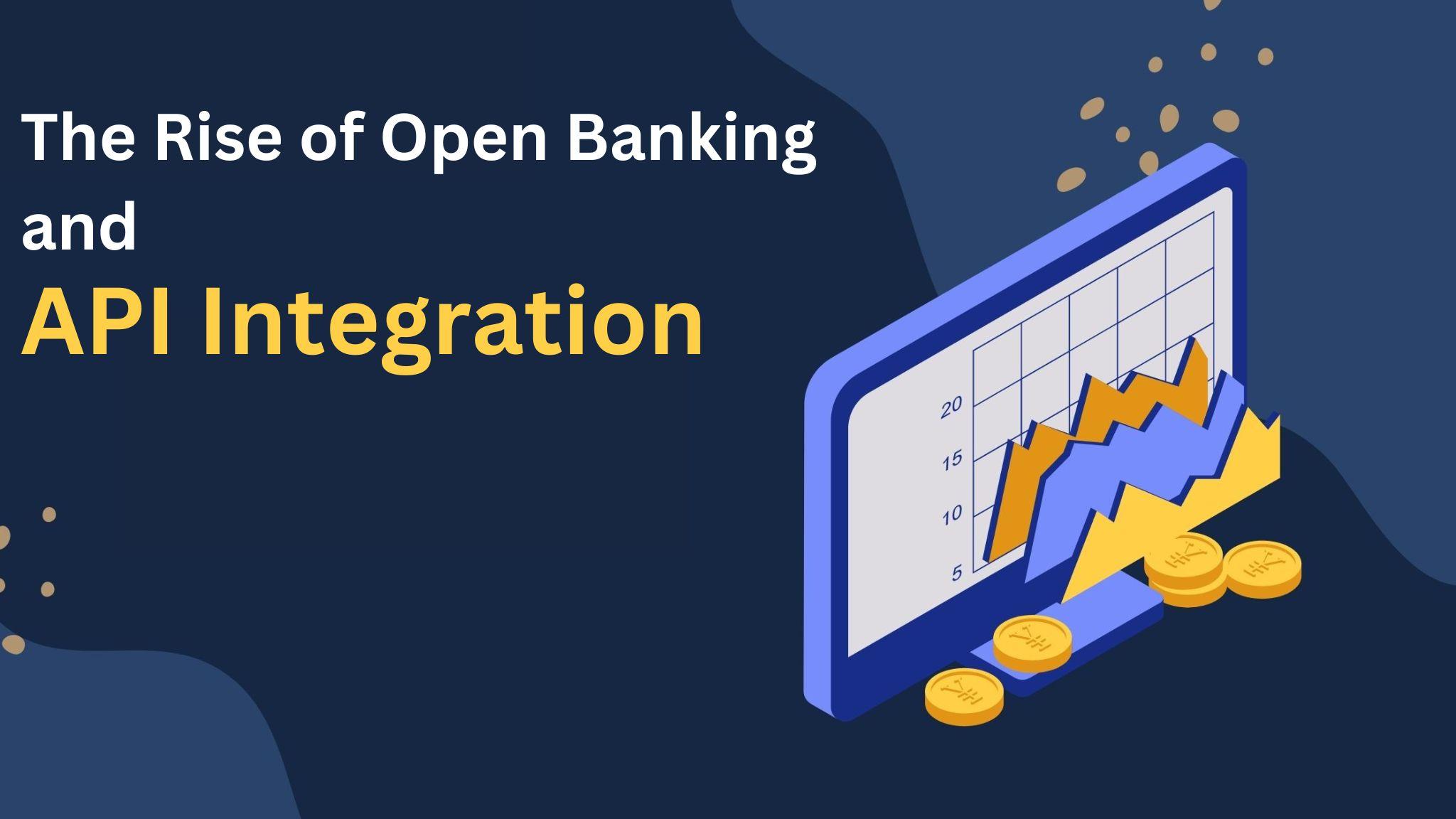Are you tired of being limited by traditional banking systems? Do you want to take control of your finances and access a wider range of services? Well, you’re in luck! The rise of open banking and API integration is revolutionizing the financial industry, giving consumers more power and control than ever before.
But what exactly is open banking and API integration? Open banking refers to the practice of opening up a bank’s data to third-party developers and services, allowing them to create innovative financial products and services that can benefit consumers.

API integration, on the other hand, involves the use of APIs (application programming interfaces) to connect different software applications and services, enabling them to share data and work together seamlessly.
Together, these two concepts are transforming the financial landscape, enabling consumers to access a wide range of services and products from different providers conveniently, securely, and efficiently. With open banking and API integration, you can easily compare other financial products, switch providers, and access new services that were previously out of reach.
So if you’re ready to take control of your finances and embrace the power of open banking and API integration, buckle up and get ready for a wild ride. The future of finance is here, and it’s looking brighter and more exciting than ever. Let’s dive in and explore the world of open banking and API integration together!
Basics of Open Banking
Open banking is a relatively new concept in the financial industry that has gained significant traction in recent years. It is a practice that involves banks opening up their data to third-party developers and service providers through APIs (application programming interfaces).
Open banking refers to the practice of sharing financial data through APIs with third-party providers, enabling them to create innovative products and services for consumers.
Open banking works by allowing third-party developers and service providers to access bank data through APIs. This data can include account information, transaction history, and other financial details. With this information, developers can create new financial products and services that are tailored to the specific needs of consumers.
One of the key benefits of open banking is increased competition in the financial industry, which can lead to better products and services for consumers. It also enables consumers to access a wider range of services from different providers through agency banking solution, making it easier to compare and switch between financial products.
Open banking also presents some challenges, particularly around data privacy and security. Banks need to ensure that the data they share is protected and secure, while also complying with relevant regulations and laws.
The concept of API Integration
API integration is a term used to describe the process of connecting different software applications and services using APIs (application programming interfaces). It is a key concept in open banking and is essential for enabling third-party providers to access bank data and create innovative financial products and services for consumers.
API integration refers to the process of connecting different software applications and services using APIs. APIs are sets of protocols, routines, and tools that enable different applications to communicate with each other and share data.
API integration works by using APIs to enable different software applications and services to communicate and share data. APIs can be used to connect different systems, such as a bank’s system and a third-party provider’s system, enabling them to work together seamlessly.
API integration offers many benefits, including increased efficiency and productivity, improved customer experience, and the ability to create innovative products and services. It also enables businesses to access new markets and customers, leading to increased revenue and growth.
The API integration can also present some challenges, particularly around data security and privacy. Businesses need to ensure that the data they share is protected and secure, while also complying with relevant regulations and laws.
The rise of Open Banking and API Integration
Open banking and API integration are rapidly growing concepts in the financial industry, driven by technological advancements and changing consumer expectations. In recent years, these concepts have gained significant traction, with many countries introducing regulations to promote open banking and API integration.
Technological advancements, such as the growth of cloud computing and mobile devices, have enabled the development of open banking and API integration. These technologies have made it easier for third-party providers to access and utilize bank data, leading to the development of innovative financial products and financial services.
Consumers are increasingly looking for more convenient and personalized financial services. Open banking and API integration enable consumers to access a wider range of services and products from different providers, making it easier to find the best solutions to meet their specific needs.
Many countries, including the European Union, the United States, and Australia, have introduced regulations to promote open banking and API integration. These regulations require banks to share their data with third-party providers through APIs, creating a more competitive and innovative financial industry.
The role of API in open banking is significant as it offers many benefits for both consumers and businesses. Consumers can access a wider range of services and products and can benefit from more personalized and convenient financial solutions. Businesses can access new markets and customers, leading to increased revenue and growth.
The rise of open banking and API integration also presents some challenges and concerns, particularly around data privacy and security. Banks and third-party providers need to ensure that they are protecting and securing the data they share, while also complying with relevant regulations and laws.
The future of Open Banking and API Integration
The future of open banking and API integration looks bright, with many exciting developments on the horizon. As technology continues to evolve, and consumer expectations change, open banking and API integration are likely to become even more prevalent in the financial industry.
More advanced use cases
As the financial industry becomes more comfortable with open banking and API integration, we are likely to see more advanced use cases. For example, we may see the development of more complex financial products and services that combine data from multiple sources, such as banking data and social media data.
Greater emphasis on security and privacy
As open banking and API integration continues to grow, there will be a greater emphasis on security and privacy. Banks and third-party providers will need to ensure that they are protecting and securing the data they share, while also complying with relevant regulations and laws.
Increased collaboration
We are likely to see increased collaboration between banks and third-party providers, as both parties work together to create innovative financial solutions. This collaboration is likely to lead to the development of more personalized and convenient financial products and services for consumers.
Integration with emerging technologies
Open banking and API integration are likely to become even more integrated with emerging technologies, such as blockchain and artificial intelligence. These technologies could enable even more advanced use cases and provide greater security and privacy for consumers.
Expansion into new markets
As open banking and API integration become more prevalent, we may see their expansion into new markets, such as emerging economies. This expansion could lead to greater financial inclusion and economic growth in these regions.
Conclusion
The rise of open banking and API integration is transforming the financial industry, offering consumers and businesses a wider range of services and products, and driving innovation and growth.
As technological advancements continue and consumer expectations evolve, open banking and API integration are likely to become even more prevalent in the financial industry in the years to come. However, while these concepts offer many benefits, there are also challenges and concerns around data privacy and security.
To ensure the continued success of open banking and API integration, banks and third-party providers must prioritize security and privacy, while also working together to create innovative financial solutions.
Author Bio
 Kiran is a versatile content writer working at Digipay.guru with a passion for storytelling. With over years of experience in the industry, she has written for a wide range of clients across various niches, including fintech, healthcare, education, information technology, and more. Her writing style is engaging and conversational, and has a knack for crafting content that resonates with her audience. She is skilled at creating blog posts, articles, social media content, email newsletters, and website copy that drives engagement and conversions. When she’s not writing, Kiran enjoys traveling, music, and exploring new culinary experiences.
Kiran is a versatile content writer working at Digipay.guru with a passion for storytelling. With over years of experience in the industry, she has written for a wide range of clients across various niches, including fintech, healthcare, education, information technology, and more. Her writing style is engaging and conversational, and has a knack for crafting content that resonates with her audience. She is skilled at creating blog posts, articles, social media content, email newsletters, and website copy that drives engagement and conversions. When she’s not writing, Kiran enjoys traveling, music, and exploring new culinary experiences.








